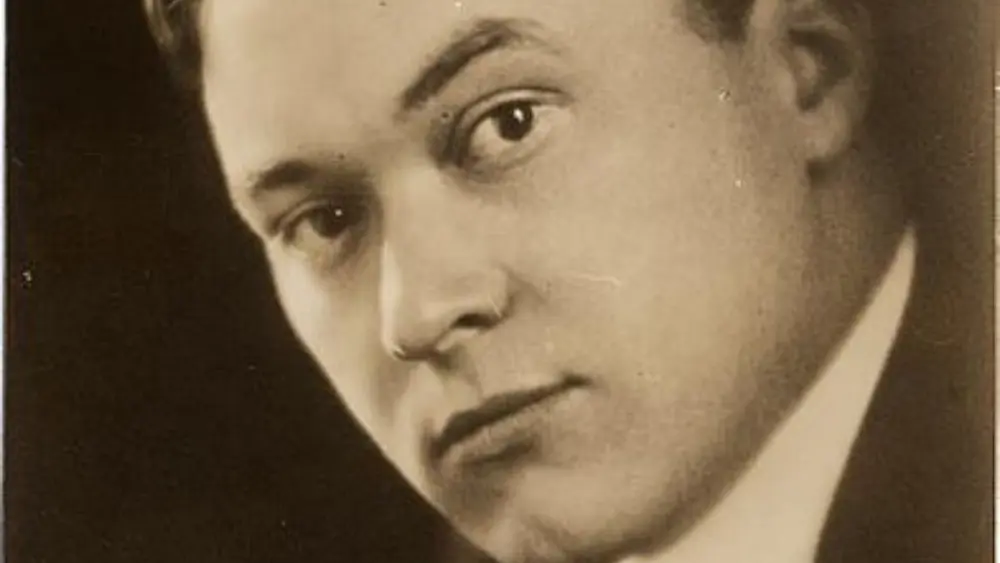Walter Lippmann, born on September 23, 1889, in New York City, was a prominent American journalist, writer, and political commentator who profoundly influenced American political thought and media.
Early Life and Education
Walter Lippmann’s journey towards becoming a renowned journalist and influential political thinker began in his early life and education. Born into a privileged family, he had the opportunity to cultivate his intellectual curiosity from a young age. This privileged upbringing allowed him access to a world of knowledge and ideas that would later shape his career. However, it was during his time at Harvard University that Lippmann truly honed his intellectual skills and passion for writing. Harvard nurtured his intellect, fostering curiosity and establishing the groundwork for his future endeavors in a vibrant academic setting.
Harvard education fueled Lippmann’s critical thinking, communication skills, and passion for contemporary politics and social concerns. Early exposure to ideas fueled an impactful career in journalism and politics, marked by insightful analysis and profound influence.
Walter Lippmann: Journalistic Career Begins
Walter Lippmann joined the New Republic in the early 1910s, starting his celebrated journalism career. Lippmann’s sharp analysis and eloquence propelled him to stardom in American journalism, a shining star in the field. At the New Republic, he deeply explored political and social issues, especially American democracy’s complexities and challenges, making significant contributions. Lippmann’s thought-provoking writings sparked debates, laying the foundation for his influential journalism career and informing and engaging readers.
At the New Republic, Lippmann’s clear, precise analysis of complex topics solidified his reputation as a journalism intellectual powerhouse. His work exemplified a dedication to thoughtful analysis and a commitment to fostering a more informed and engaged citizenry. Lippmann’s early journalism hinted at his enduring influence in shaping public discourse and American political thought, marking a lasting legacy.
Public Opinion and The Phantom Public
In 1922, Walter Lippmann introduced a seminal work into the realm of political thought with the publication of “Public Opinion.” This groundbreaking book delved deep into the intricate dynamics between the media, public perception, and their impact on democratic governance. Lippmann’s “manufacture of consent” concept in the book revealed media and elite manipulation of public understanding of complex issues. Lippmann’s illumination reshaped democracy and sparked modern media and political theory, challenging traditional notions of informed decision-making. Public Opinion” endures as a timeless, influential work, shaping our understanding of media, public discourse, and democracy for a century.
Lippmann’s “Public Opinion” remains a testament to his enduring contribution to media and political theory’s ongoing relevance. The book’s enduring influence underscores the need for critical media literacy and examining information shaping our democracy.
Walter Lippmann: Influential Commentator
Walter Lippmann’s enduring legacy as an influential commentator was firmly established through his column, “Today and Tomorrow,” a fixture in the New York Herald Tribune for over three decades. With a keen intellect and a gift for incisive analysis, Lippmann offered readers a unique window into the ever-evolving landscape of domestic and international affairs. “Throughout his career, he consistently provided insightful commentary on pivotal events that helped shape the course of the 20th century, including World War I, the Great Depression, and World War II.
Lippmann’s ability to distill complex issues into accessible narratives not only informed the public but also played a pivotal role in shaping policy discussions and public discourse. His columns were characterized by a commitment to truth and a dedication to presenting a balanced and well-reasoned perspective on the pressing issues of his time. In an era marked by profound societal and geopolitical shifts, Walter Lippmann emerged as a trusted voice whose insights and commentary continue to resonate and inspire critical thinking in journalism and political commentary to this day.
Critique of Democracy and The Public Philosophy
In “The Phantom Public” (1925) and “The Public Philosophy” (1955), Walter Lippmann embarked on a sustained critique of democratic ideals, delving deeper into his skepticism about the capacity of the average citizen to engage in informed political decision-making. Across these two influential works, he challenged the conventional notion that a well-informed and actively engaged public could effectively navigate the complexities of modern governance. Lippmann’s arguments resonated with his belief in the vital role of expert knowledge and technocratic governance in a world marked by intricate and multifaceted challenges.
“The Phantom Public” and “The Public Philosophy” offered a compelling counterpoint to prevailing democratic optimism, emphasizing the need for a more realistic appraisal of the limitations of public participation in complex matters. Lippmann’s ideas remain a source of debate and discussion, sparking ongoing conversations about the role of expertise, the intersection of democracy and governance, and the delicate balance between citizen engagement and the guidance of knowledgeable elites in shaping the future of societies and nations. His writings provoke reflection on democracy’s evolution and the complexities of governing in our intricate, interconnected world.
Walter Lippmann: Advisor to Presidents
Walter Lippmann’s broad influence extended to advising U.S. presidents, leaving an enduring impact on American foreign policy beyond commentary. His advisory spanned administrations from Wilson onwards, shaping U.S. foreign affairs during World War I with crucial insights. Lippmann’s nuanced insights and foresight earned him trust as a confidant for presidents navigating intricate international issues.
His advisory contributions continued into the era of Franklin D. Roosevelt and Lyndon B. Johnson, with Lippmann’s writings and counsel leaving an enduring imprint on presidential decision-making. Whether through his newspaper columns, books, or personal interactions, Lippmann’s intellectual prowess and deep understanding of global dynamics ensured that his insights carried significant weight in the highest echelons of the U.S. government, highlighting the enduring impact of his multifaceted career on the trajectory of American foreign policy.

Legacy and Lasting Influence
Walter Lippmann’s lasting legacy is his profound impact on journalism, public opinion, and governance, shaping them significantly. His insights on media-public ties and expertise in governance are widely studied and debated in academia and beyond. Lippmann’s focus on media truthfulness and citizenry awareness remains crucial amid tech advances and digital media’s growth. His work is a touchstone for understanding information dissemination and journalism’s crucial role in shaping public discourse.
Lippmann’s ideas not only remain pertinent but also offer valuable guidance in navigating the complexities of contemporary democratic societies. Lippmann’s work underscores the vital need for informed citizens amid misinformation, polarization, and expert involvement in governance. His writings inspire scholars, journalists, and policymakers, nurturing vibrant, well-informed democracy amid evolving challenges and opportunities.











